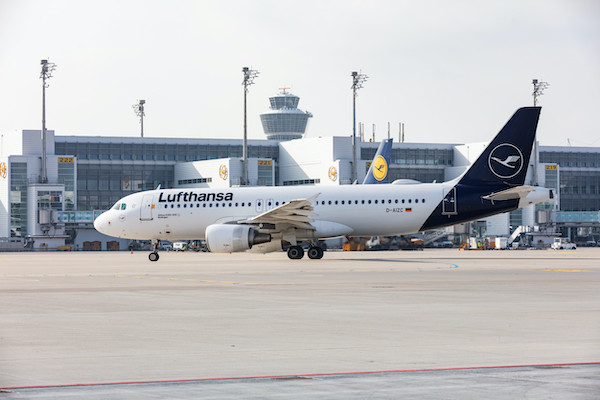Lufthansa has announced a significant agreement with its cabin crew, effectively resolving long-standing disputes.
Under the agreement, a 17.4% pay increase will be implemented over three years, accompanied by a €3,000 one-off payment for 19,000 cabin crew members.
This development is aimed at enhancing job satisfaction and stability for staff, while ensuring operational continuity for the airline.
Details of the Agreement
This comprehensive agreement will result in a substantial 17.4% pay rise for Lufthansa cabin crew over the next three years. Moreover, a one-time payment of €3,000 will be distributed to eligible staff members promptly. Such financial incentives are intended to not only reward the diligence of the cabin crew but also to maintain high morale and productivity among employees.
The agreement marks the culmination of negotiations between Lufthansa and the UFO union, which represents the airline’s cabin crew. This negotiation process has been ongoing, reflecting both parties’ commitment to achieving a mutually beneficial outcome.
Lufthansa’s management highlighted that the increase will be phased in gradually, allowing both the company and employees to adjust to the new financial circumstances. This approach underscores Lufthansa’s strategy to manage its resources effectively while honouring the hard work of its staff.
Impact on Ground Staff
In addition to cabin crew agreements, the Verdi union achieved average salary increases of 12.5% over two years for approximately 20,000 Lufthansa ground staff. These negotiations were concluded after a comprehensive arbitration process, ensuring fairness and transparency in addressing staff remuneration.
The resolution of these disputes has been crucial in stabilising operations across Lufthansa’s services. Ground staff play a pivotal role in supporting the airline’s daily functions, and this agreement ensures that they are compensated adequately, thereby reducing the risk of operational disruptions arising from labour dissatisfaction.
Resolving Security Staff Disputes
Security staff at numerous German airports recently secured wage increases ranging from 13.1% to 15.1% over 15 months.
This agreement, concluded earlier in the week, aims to enhance the working conditions and satisfaction of security personnel, who are vital to maintaining airport safety and efficiency.
Such developments highlight the broader commitment within the aviation sector to address and resolve labour issues, demonstrating an ongoing effort to ensure airports and airlines operate smoothly and efficiently.
Lufthansa’s Strategic Approach
Lufthansa’s approach to resolving these disputes demonstrates a balanced strategy, focusing on the interests of both employees and the company. By opting for negotiation and phased implementation, Lufthansa exhibits its commitment to sustainable financial and operational practices.
This focus on strategic negotiation reflects the broader industry trend of fostering positive labour relations, ensuring that employee welfare is addressed without compromising the company’s economic health.
Challenges and Future Directions
While the agreements reached are a positive step, they present certain economic challenges that Lufthansa must navigate. With increased salary commitments, the company will need to strategise effectively to maintain its financial stability while honouring these agreements.
Lufthansa’s human resources chief, Michael Niggemann, acknowledged the economic challenges posed by the new agreements. He emphasised the importance of finding solutions collaboratively with labour unions, underscoring the carrier’s commitment to dialogue.
The airline will likely need to explore various measures to optimise its operations and uphold its service quality while accommodating these financial commitments. Such strategies will be essential to sustain Lufthansa’s competitive edge in the aviation sector.
Reflections from Lufthansa’s Leadership
Michael Niggemann expressed satisfaction with the negotiations’ outcome, stating: ‘I am very pleased about the agreement with our collective bargaining partner UFO – for our colleagues in the cabin, who do an outstanding job every day, and also for our guests, who finally have planning security again in this regard when flying with Lufthansa.’ His comments reflect a commitment to maintaining high service standards while ensuring staff welfare.
He further noted the importance of resolving labour issues to safeguard the airline’s reputation and reliability as a leading carrier. Such resolutions are vital in maintaining customer confidence and operational consistency.
Conclusion
The agreements reached by Lufthansa with its cabin crew, ground staff, and security personnel are pivotal in ensuring the airline’s smooth operations and employee satisfaction. By addressing these disputes, Lufthansa not only stabilises its workforce but also strengthens its position in the competitive aviation market.
Lufthansa’s agreement with its cabin crew, alongside resolutions for ground and security staff, exemplifies a proactive approach to workforce management. Such efforts not only ensure employee satisfaction but also position the airline to maintain operational excellence and competitiveness in the market.

